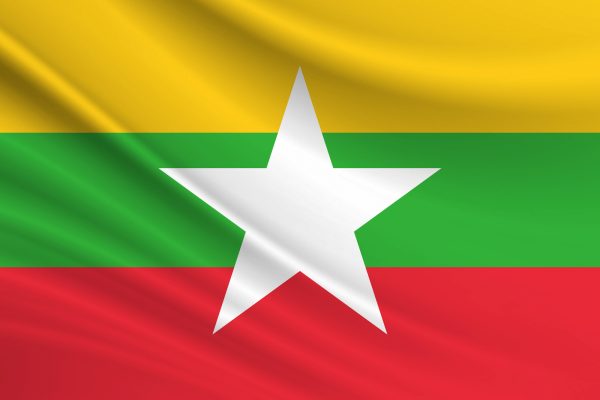Myanmar’s military junta earned more than $800 million from natural gas exports in the four months from April to July, the state-run Global New Light of Myanmar reported yesterday. The newspaper cited figures from the junta’s Ministry of Commerce claiming that the country exported 77.89 million kiloliters of natural gas during the above period, mostly to Thailand and China. This landed the government $819 million, which the paper claimed was an increase of $60.7 million on the same period last year.
According to the report, this came on top of the $1.72 billion that the Commerce Ministry claims it earned from natural gas exports in the two quarters from October 2021 to March of this year, bringing its total to more than $2.5 billion in less than a year. Most of this gas is from the Yadana, Yetagun, Shwe, and Zawtika offshore gas fields.
The announcement is likely to prompt a redoubling of activists’ calls for sanctions to be imposed on the Myanma Oil and Gas Enterprise (MOGE), the state-owned enterprise which funnels oil and gas revenues to the Myanmar government. Since the military coup of February 2021, rights groups have agitated for the imposition of sanctions on MOGE, which a United Nations human rights expert said “represents the single largest source of revenue” to the Myanmar government.
The advocacy group Justice for Myanmar said yesterday that gas revenues were funding the military’s crimes against humanity, and called on the U.S. government to “step up its action against #Myanmar military & sanction Myanma Oil and Gas Enterprise NOW.” In February, the European Union announced sanctions against MOGE, claiming that the military’s control of the firm is “contributing to its capabilities to carry out activities undermining democracy and the rule of law in Myanmar/Burma.” The U.S. Congress has also recommended that the Biden administration impose sanctions on MOGE.
The announcement came on the same day that the United Kingdom announced a new round of sanctions on the military regime, targeting a number of military-linked businesses “in an effort to limit the military’s access to arms and revenue.” The sanctions coincided with the fifth anniversary of the Myanmar military’s violent expulsions of more than 700,000 Rohingya from the northern parts of Rakhine State in western Myanmar.
Whether or not the timing was a coincidence, the nature of the announcement, which was trumpeted on the front page of the Global New Light for Myanmar, is hard not to read as a boastful claim by the junta that despite the host of sanctions that Western nations have imposed since last year’s coup, the military is still able to sustain itself financially.
So far, many of the sanctions imposed by the U.K., United States, and European Union have had limited effects simply because nations closer at hand, particularly China and Thailand, have continued to do business with the military government. Earlier this year, the multinational oil majors Total and Chevron announced that they would pull out of the Yadana offshore gas field due to the country’s deteriorating political and human rights situation, but this has simply resulted in their stakes being transferred to other foreign partners in the Yadana project. (MOGE reportedly saw its stake rise from 15 percent to 21 percent after Total’s withdrawal.)
Earlier this month, Associated Press reported that the EU sanctions on MOGE had “led the Bank of China to advise operators of the Shwe oil and gas field in northwestern Myanmar that it will not handle payments in euros to MOGE out of concern they might fall afoul of those restrictions.” It cited two sources as saying that euro payments to MOGE were being kept in escrow accounts – a report that would seem to contradict the military junta’s earnings announcement.
But that only involved one of the offshore gas fields, and if there is any chance of definitively cutting off the junta’s natural gas revenues, the U.S. would have to impose sanctions on MOGE and then pursue secondary sanctions against all other foreign companies that continue to do business with it.
This would include Thailand’s PTT Exploration & Production (PTTEP), which was reported to have taken over Total’s stake in the Yadana gas field after its withdrawal this year, and produces and exports large amounts of natural gas to western Thailand, from the Yadana, Yetagun, and Zawtika fields. This raises the question: Would the U.S. government be willing to sanction a state-owned Thai company at a time in which U.S.-Thai relations are stagnating, and Washington fears the extent of Chinese inroads in Thailand?
Probably not, and any attempt to convince PTTEP to cease its dealings with the Myanmar regime would require sustained and sensitive diplomatic outreach to Bangkok, especially given the fact that Thai acquiescence is necessary for the Western support of Burmese exile groups and civil society organizations based in Thailand.
There is a lot more than can be done to restrict the Myanmar military’s access to the weapons that it is using to consolidate its coup. But as the past 18 months have shown, the goal of cutting off the junta’s main revenue source is more complicated than it might first appear.


